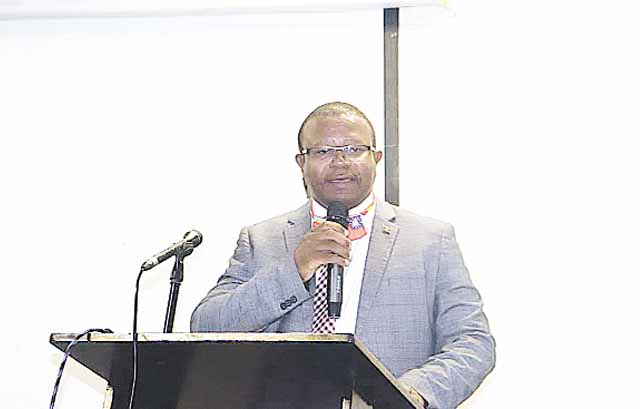By Sitakele Maseko (Community Circles Coordinator) | 2024-12-05
Unsafe abortion remains one of the leading causes of maternal mortality worldwide, claiming the lives of thousands of women and girls each year.
Despite advances in reproductive health and rights, a significant number of women still face unsafe and illegal abortions, leading to preventable deaths.
This tragic reality is unacceptable, as every woman and girl deserved the right to life, health, and safety—free from the risks of unsafe medical practices. On the December 2, 2024, One Billion Rising and Journey of Hope for Girls and Women in Eswatini in partnership with SAFAIDS hosted an Interface dialogue with traditional leaders, religious leaders, community members and partners on sexual reproductive health rights with the main focus on access to safe abortion for women and girls. Below were discussions from the dialogue:
“Restrictive legal framework forces many women and girls facing unintended pregnancies whether due to rape, incest, or contraceptive failure into dangerous situations” said Colani Nhleko, SAFAIDS acting Director
SAFAIDS Acting Director Colani Nhleko mentioned that abortion was highly restricted in Eswatini.
Under the current law, abortion was only allowed in cases where the life of the mother was at risk or when the pregnancy poses a threat to her health.
He further mentioned that this restrictive legal framework forces many women and girls facing unintended pregnancies—whether due to rape, incest, or contraceptive failure—into dangerous situations. Without access to safe, legal abortion services, women often resort to unsafe, illegal methods to terminate their pregnancies.
Unsafe abortion was the a significant cause of maternal morbidity and mortality in Eswatini. Women who seek illegal abortions were at risk of complications such as infections, hemorrhaging, and injury to reproductive organs, which could lead to long-term health issues or death.
This issue was exacerbated by lack of awareness about safe abortion options and the stigma surrounding abortion, which discourages many women from seeking the medical help they need.
The Link Between Gender-Based Violence and Unsafe Abortion
Colani Hlathwako, One Billion Rising Africa Regional Coordinator said the relationship between GBV and unsafe abortion in Eswatini was both direct and indirect. GBV, particularly sexual violence, was a leading cause of unintended pregnancies.
“Women and girls who are survivors of rape or intimate partner violence often face unwanted pregnancies that are the result of coercion and violence. In many cases, the pregnancy itself is a reminder of the trauma they endured, and they may seek an abortion as a way to regain control over their bodies and futures”, said Colani Hlatjwako.
However, the restrictive abortion laws in Eswatini leave survivors with few options. Due to the stigma surrounding abortion and the fear of legal repercussions, many women and girls turn to unsafe methods, such as self-induced abortions or seeking services from unqualified providers.
These unsafe procedures place their lives and health at great risk, further compounding the harm caused by GBV.
The situation was particularly dire for young women and girls, who are especially vulnerable to sexual violence and may not have access to the necessary resources or support networks to navigate an unintended pregnancy.
The consequences of unsafe abortion were particularly severe for adolescent girls, who might not be equipped to handle the physical and emotional toll of both the violence and the abortion process.
Traditional leaders say in many communities, the lack of comprehensive sexual and reproductive health education leaves women and girls vulnerable to unintended pregnancies and unsafe abortion.
The traditional leaders urged government and organisations to empower communities about dangers of unsafe abortions. Speaking during the interface dialogue, Ngonini Bucopho Mlamuli Dlamini said without proper knowledge and education people would die. More education and engagement on this topic could help change people’s lives.
Further the empowerment or education should apply to traditional leaders so that they could be able to play a key role in advocating for and integrating reproductive health education into their communities.
“We can support initiatives that provide young people with knowledge about contraception, safe sex, and reproductive rights, which can prevent unwanted pregnancies and reduce the need for abortions; only if we are empowered”, said Mlamuli Dlamini, Ngonini Bucopho
Way forward
Both community members and traditional leaders agreed on that no woman or girl should ever face the life-threatening risk of unsafe abortion. It should be a grave violation of human rights that too many women and girls get subjected to preventable harm and death due to unsafe and illegal abortions.
There was an urgent need for the community to unite to ensure access to safe and legal abortion services, educate individuals about reproductive health, and protect the right of every woman and girl to make decisions about her body without fear for her life or well-being.
It was time to make unsafe abortion a thing of the past.
It was now the responsibility of the communities to lobby Parliament to review laws in order to prevent unsafe abortion cases.
share story
Post Your Comments Below

TODAY marks day four since the Little Incwala begun and many locals, including creatives, have ma...

THREE days in, the Little Incwala drew throngs of enthusiastic locals who joined Their Majesties ...

Eswatini is set to significantly elevate its handicraft sector through a multi-million investment...

SOCCER - EMBATTLED Mbabane Highlanders Managing Director Chief Ally Kgomongwe is said to have pai...
All material © Swazi Observer. Material may not be published or reproduced in any form without prior written permission.
Design by Real Image Internet